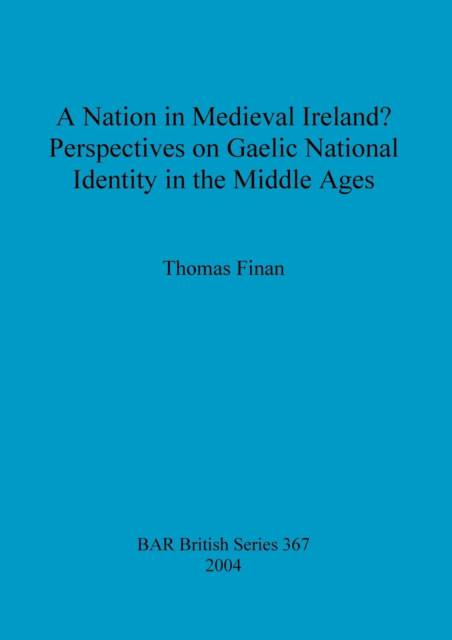
- Afhalen na 1 uur in een winkel met voorraad
- Gratis thuislevering in België vanaf € 30
- Ruim aanbod met 7 miljoen producten
- Afhalen na 1 uur in een winkel met voorraad
- Gratis thuislevering in België vanaf € 30
- Ruim aanbod met 7 miljoen producten
A Nation in Medieval Ireland? Perspectives on Gaelic National Identity in the Middle Ages
Thomas FinanOmschrijving
This study investigates the nation and nationalism, national ideology, and national identity in Ireland during the thirteenth and fourteenth centuries. The study aims to explore whether such terms as "nation "or "nationalism " may be applied to medieval Ireland. While many historians and sociologists argue that the nation may exist only in the modern world with the advent of the nation-state, others have shown that, at least, ethnic groups which appear to be nations existed in medieval Europe, possibly in antiquity. In Ireland, historiographical issues related to the creation of the modern Irish state in the early twentieth century have always guided the study of the nation and nationalism. The central questions addressed include whether there are observable manifestations of a nation, national identity, and ethnically-based ideology in Gaelic Ireland in the years 1200-1400, and the extent to which those manifestations may accurately be described in national terms. In this study, the nation shall be defined as a population sharing an ethnic history, tradition, language, and/or religion, and this population's connection with a particular, definable geographic region. In addition, this identity will be shown as often conflicting with the self-ascribed identity of another population sharing the same or neighboring geographic space. Hence, examples of a nation found in medieval Ireland will embody the double characteristics of being a means of self-identity for the Irish and of self-distinction from the Anglo-Normans.
Specificaties
Betrokkenen
- Auteur(s):
- Uitgeverij:
Inhoud
- Aantal bladzijden:
- 134
- Taal:
- Engels
- Reeks:
- Reeksnummer:
- nr. 367
Eigenschappen
- Productcode (EAN):
- 9781841716008
- Verschijningsdatum:
- 1/06/2004
- Uitvoering:
- Paperback
- Formaat:
- Trade paperback (VS)
- Afmetingen:
- 210 mm x 297 mm
- Gewicht:
- 449 g

Alleen bij Standaard Boekhandel
Beoordelingen
We publiceren alleen reviews die voldoen aan de voorwaarden voor reviews. Bekijk onze voorwaarden voor reviews.











